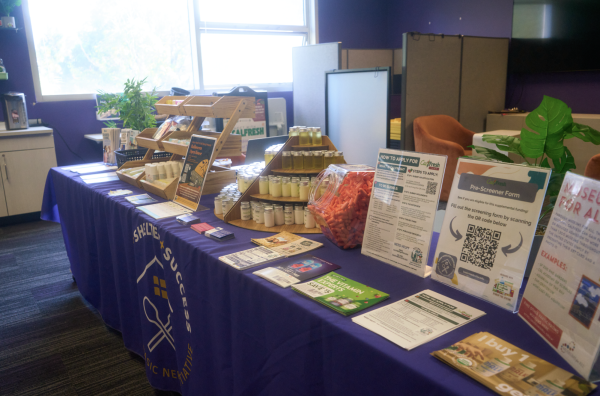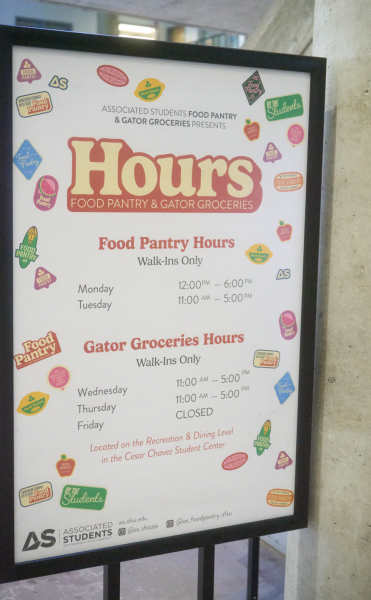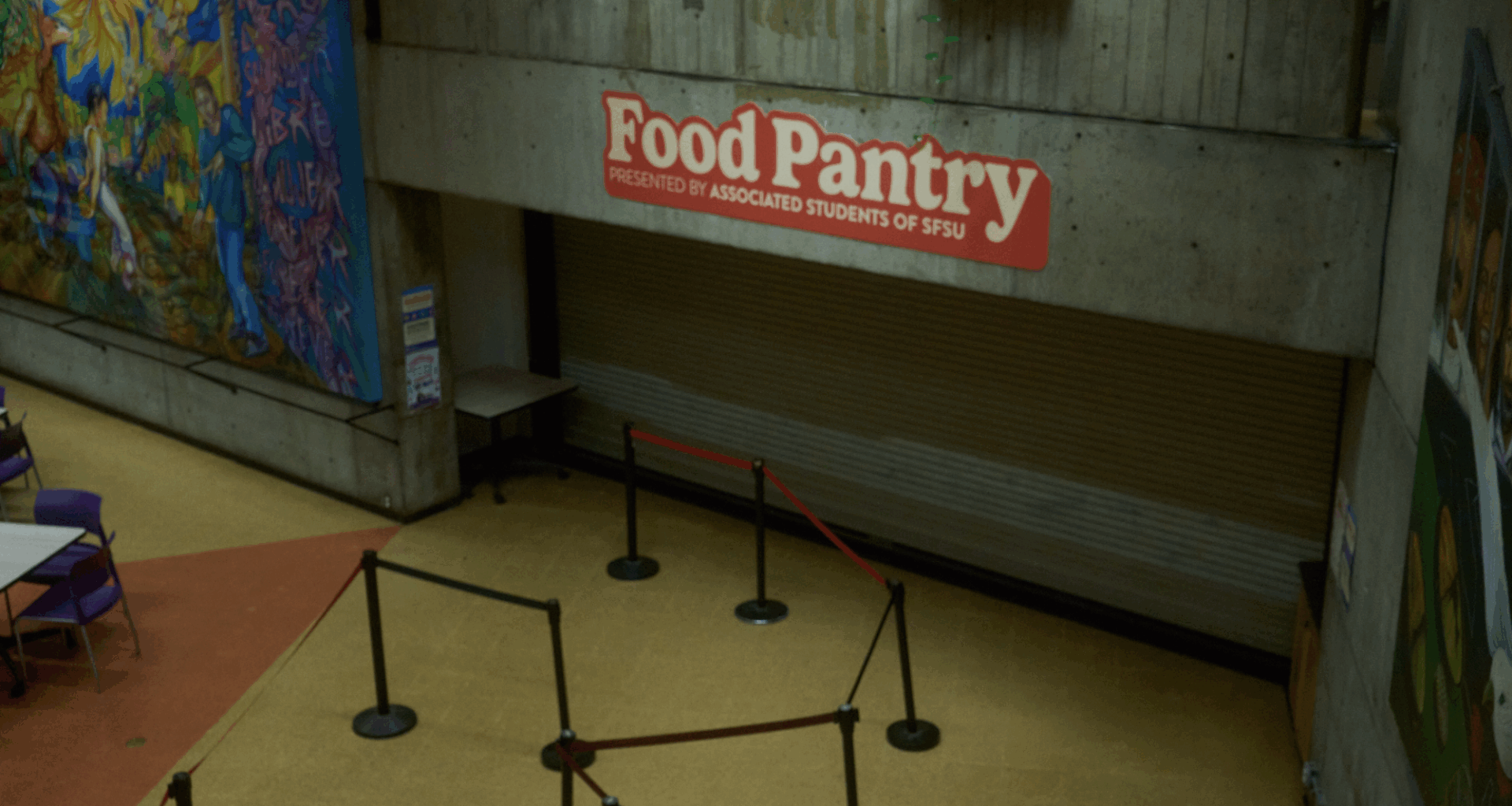After 30 days of gridlock, the U.S. federal government is still shut down. Currently, the second-longest shutdown in the country’s history, one of its various effects was a lack of support for federally funded food aid programs for the first time in their history.
Serving over 40 million people nationwide, food aid programs go by many names: electric benefit transfer, Supplemental Nutrition Assistance Program, food stamps and here in California, CalFresh.
The Trump administration asserted that it would not tap into the emergency reserve established by Congress to address any crises with the anti-hunger service. Federal Judge John J. McConnell Jr. ruled that the Trump administration had acted unlawfully by refusing to tap into that reserve and that the SNAP benefits must be paid out.
Funds not yet used on SNAP accounts will stay accessible, and the November funds that have been ordered to be disbursed will roll over whenever the government reopens or if the administration decides to follow the federal ruling against them.
On Wednesday, San Francisco Mayor Daniel Lurie announced the city will be covering SNAP recipients’ funds for the month of November through an $18 million public-private partnership. Starting Saturday, San Francisco’s Human Services Agency will mail prepaid cards with the balance that the recipient would have received for the month. Half of the cost comes from a $400 million city reserve, established solely to protect the city against federal cuts from this year’s budget, while the other half is covered by Crankstart, a family foundation led by venture capitalist Michael Moritz and writer Harriet Heyman.
Food assistance programs at San Francisco State University are preparing to support the influx of students who rely on food aid in the wake of the government cutting them off. At SFSU’s Basic Needs department, Sara Flynn and Mariven Rendon, the department’s programs coordinator and CalFresh outreach coordinator, are welcoming the extra load of students.
 A spread of free essential products inside the Basic Needs Department located on the third floor of SFSU’s Student Services Building on Friday, Oct. 31, 2025. (Lindsey Hoang / Golden Gate Xpress)
A spread of free essential products inside the Basic Needs Department located on the third floor of SFSU’s Student Services Building on Friday, Oct. 31, 2025. (Lindsey Hoang / Golden Gate Xpress)
“We have worked on an additional food purchase for some essential staples that maybe can help fill in what folks are already receiving at Gator Groceries,” Flynn said. “Just [fill] that immediate need if a student is coming to us first, we can at least give them a little bit of something.”
The Basic Needs department offers food alongside many essentials like toothpaste, shampoo and wipes. As a department that offers CalFresh assistance, they want to make clear that enrollment for the program is still an option during the shutdown.
“We’re still encouraging students to apply for CalFresh despite the government shutdown,” Rendon said. “Eligibility and approval of cases is not negatively impacted, so if students are applying during the government shutdown, they will see retroactive disbursements of any benefits that were owed to them.”
Until the government reopens and benefits are disbursed, resources like Gator Groceries and the Associated Students Food Pantry are still available to students. Chelsea Camino, a student assistant with the pantry, has seen an increase in the levels of outreach, but the programs are prepared to meet the needs.
“We usually got around 900 to 1,000 [students], and I think now we’re up to like 1,300,” Camino said. “We’ve been prepping by ordering more quantities of food, because we order by how many households we think we’ll have [to serve]. We’ve definitely upped that number and asked for the help of more volunteers, especially on Mondays and Tuesdays, because those are when we get our loadouts.”
Gator Groceries can be found in the basement of the Cesar Chavez Student Center and Basic Needs can be found on the third floor of the Student Services Building.
“As long as you bring your ID number, we’ll gladly sign you in and send you on your way with some free food,” Camino said.
 A sign of Associated Students Food Pantry and Gator Groceries’ hours posted in the Cesar Chavez Student Center on Friday, Oct. 31, 2025. (Lindsey Hoang / Golden Gate Xpress)
A sign of Associated Students Food Pantry and Gator Groceries’ hours posted in the Cesar Chavez Student Center on Friday, Oct. 31, 2025. (Lindsey Hoang / Golden Gate Xpress)
It’s not just the pantries that function as resources for students in need. The Jewish studies department offers free food every day, like bagels and babka or pizza and pasta, in Room 415 in the Humanities Building. Kitty Millet, professor and chair of the department, sees this as a necessity.
“We interpret it as a kind of ethical obligation,” Millet said. “No one has to be any one thing. When they come here, they don’t have to identify themselves as needing any kind of SNAP or any other program. They just come because they want to be somewhere and they can be normal when they’re there.”
Outside of SFSU, leaders and citizens of the Bay Area have banded together to support those whom the federal government won’t. All across the Bay Area, restaurants, food banks and pantries have put out statements saying that starting on Nov. 1, they will be assisting SNAP recipients with free or discounted food.
Many of those institutions are based in San Francisco, including Al Pastor Papi and Devil’s Teeth Baking Company. Miguel Escobedo, owner of Al Pastor Papi, said he believes supporting your community in times of crisis is vital to the continuation of it.
“I’ve had a few employees in the past — I’ve been a restaurant owner since 1999, different restaurants — I’ve personally seen, even with SNAP, people have to make hard choices to juggle to feed themselves and their families,” Escobedo said. “So I knew that if SNAP would be cut off, it would be even harder. Feeling that pressure for people that I’ve known in the past and just showing up for my community, I wanted to be part of the wave of restaurants that are offering something.”
Despite the federal ruling, whether or not the Trump administration follows it remains to be seen. In the meantime, the Bay Area bears many alternative food aid options.

